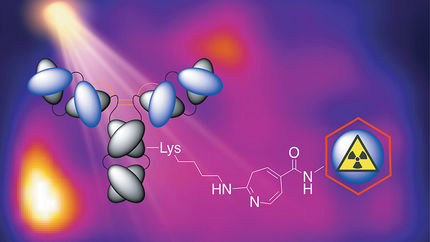Routine blood test predicts how long cancer patients will survive
A routine blood test can predict how long cancer patients in palliative care will survive, researchers report at the ESMO Asia 2016 Congress in Singapore.
"Cancer patients in palliative care want honest and accurate prognostic information but this information needs to be shared sensitively and in a way that respects their desire to maintain hope," said lead author Dr Yu Uneno, an oncologist at Kyoto University.
"Patients with advanced cancer and their families have to make decisions about treatment, where to spend the end-of-life, and when to discontinue palliative chemotherapy," added Dr Uneno. "Continuing ineffective therapy increases life-threatening adverse events, reduces quality of life, delays hospice referral, and deprives patients of the chance to die in their preferred place. Accurately predicting prognosis improves end-of-life care for cancer patients and their caregivers."
Survival evaluations can determine whether or not pharmacological treatment should be given. Cytotoxic chemotherapy would rarely be prescribed in a patient unlikely to survive beyond several weeks because of unpleasant side effects. The sedative midazolam is used for symptom relief in palliative care settings, but tolerance can develop if administered for two weeks or longer. Chronic midazolam treatment could therefore be recommended only for patients likely to die within a few weeks, and be contraindicated when predicted survival was longer than a month.
Previous models for predicting prognosis used subjective conditions such as dyspnoea and delirium which may be scored differently by clinicians. These conditions were assessed once (at the start of treatment, for example), limiting the use of the models to that time point.
The current Six Adaptable Prognostic (SAP) models use three laboratory measurements (albumin, neutrophil, lactate dehydrogenase) which are routinely monitored in daily clinical practice with a blood test. The models can be used at any time point after the initiation of treatment - an important feature since a patient's condition can change. The six models were developed in approximately 5,000 cancer patients receiving chemotherapy at Kyoto University Hospital in Japan. They predicted death within 1-6 months for patients with cancer receiving chemotherapy, allowing physicians to re-estimate prognosis at any time point after the initiation of chemotherapy.
The current study tested the predictive value of the models in cancer patients receiving palliative care. It was designed as a sub-analysis of the Japan-prognostic assessment tools validation (J-ProVal) study, which compared the ability of four models to predict survival of advanced cancer patients in the real world.4
This sub-analysis included 1,015 patients, of whom 385 were based with palliative care teams in hospital, 464 were in palliative care units, and 166 were receiving palliative care services at home. The investigators performed receiver operating characteristic (ROC) analysis to calculate the ability of the SAP models to predict death in cancer patients in the palliative care setting. The area under the curve (AUC) for predicting death within 1-3 months ranged from 0.75 to 0.80.
Dr Uneno said: "We found that the SAP models had a good ability to predict that a patient would die in one to three months. The prediction was accurate in 75-80% of cases. The SAP models could be a promising decision aid for healthcare professionals and patients. Accurate prediction of survival allows patients adequate time to prepare for their impending death5 and is vital for planning effective palliative care."
Commenting on the findings, Dr Grace Yang, consultant, Division of Palliative Medicine, National Cancer Centre Singapore, said: "The rapidly increasing armamentarium of anti-cancer therapy means that cancer patients can receive multiple lines of chemotherapy, immunotherapy or targeted therapy. Cancer patients may have aggressive treatment until the very last days of life, not without physical symptoms and great financial cost. Information about a cancer patient's prognosis will help weigh the benefits and burdens of further cancer-directed treatment."
"Knowing the patient's prognosis will facilitate decision making regarding trade-offs, not only for anti-cancer therapy, but for treatments directed at relieving symptoms. For example, in deciding between pain-relieving treatments with different time horizons for onset and duration of effect, with different side effects/ risk profiles and different financial costs. As we get closer to knowing how long a cancer patient has to live, further studies exploring the ethical and psychological implications will also be worthwhile."

























































